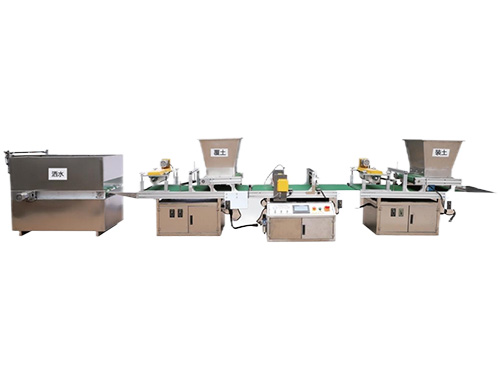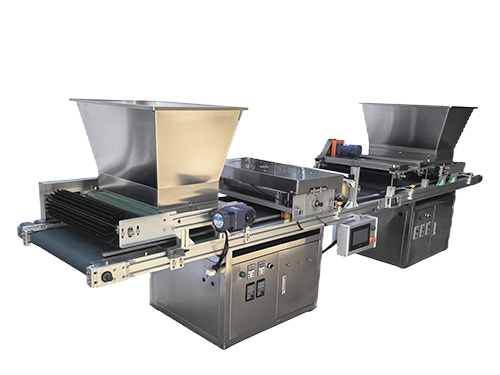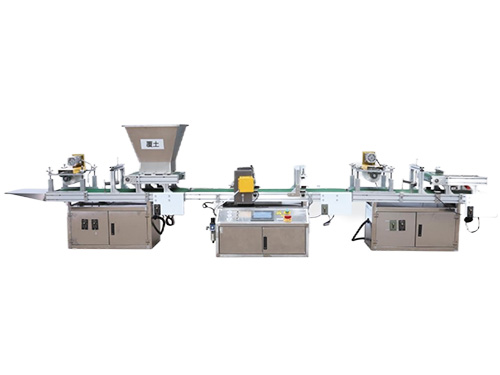Several principles to follow when using seedling trays
2023-11-06 13:51:14
Using seedling trays can enhance plant growth, ensure healthier seedlings, and improve agricultural efficiency. However, following certain principles is essential to maximize their benefits. This guide outlines key principles to follow, from substrate preparation to seed treatment, to ensure your plants grow in optimal conditions.
1. Ensure an Eco-Friendly Substrate
A crucial factor in seedling cultivation is the quality of the growing medium. The substrate should:
Be free from harmful elements: Avoid live bacteria, insect eggs, and harmful substances to prevent contamination of the soil and food chain.
Use fermentation agents: Rapid fermentation helps achieve sterilization, disinfection, and removal of pests from the substrate.
By ensuring a clean and eco-friendly substrate, the seedlings can thrive without introducing contaminants into the growing environment.
2. Mimic the Natural Functions of Soil
While the substrate must offer superior growing conditions compared to regular soil, it should also replicate key soil functions, including:
Facilitating root entanglement: This feature supports root development and mounding practices.
Ensuring water retention: Proper moisture levels promote root health and plant growth.
This balance helps plants adapt to their environment more easily during transplanting.
3. Use Organic-Inorganic Composite Substrates
For optimal growth, it is recommended to prepare a blend of organic and inorganic materials. Key considerations include:
Improving aeration and moisture regulation: A balanced substrate ensures the roots receive sufficient oxygen and nutrients.
Preventing disease transmission: Used trays may harbor pathogens or insect eggs, so thorough cleaning and disinfection are essential.
Cleaning and Disinfection Steps
1. Remove residual substrate: Clear out old materials and wash the tray thoroughly.
2. Disinfect the trays: Use a solution of 500x carbendazim for 12 hours or 1000x potassium permanganate for 30 minutes. Formaldehyde or bleach solutions can also be used.
3. Air dry the trays: Ensure the trays are fully dry before reuse to prevent fungal infections.
4. Use New, Lightweight Substrates
When preparing new seedling trays, opt for lightweight substrates like:
Peat, vermiculite, and perlite: These materials offer excellent water retention and aeration.
Sterile and contaminant-free substrates: Ensure they are free from insect eggs, impurities, and harmful bacteria.
A common preparation ratio is peat: vermiculite:perlite = 3:1:1. For added nutrients, mix in 2 kg of diammonium phosphate, high-temperature chicken manure, or NPK compound fertilizer (15:15:15) per cubic meter of substrate.
5. Treat Seeds Before Planting
Pre-treating seeds ensures better germination and uniform emergence. Recommended seed treatment methods include:
Selection and cleaning: Remove damaged or underdeveloped seeds.
Chemical soaking: Treat seeds with fungicides or disinfectants to prevent diseases.
Soaking in warm water: This technique promotes faster germination.
Pre-germination: Begin the sprouting process before sowing to improve emergence rates.
6. Maximize Planting Efficiency
Following these principles ensures not only healthier seedlings but also improved agricultural efficiency. Using properly prepared trays, disinfected materials, and treated seeds minimizes transplanting stress and reduces disease risks. These practices:
Lower labor costs: Automating parts of the planting process saves time and manpower.
Increase yield and quality: Healthy seedlings lead to better crop outcomes.
Enhance sustainability: Clean substrates and reusable trays contribute to an eco-friendly growing process.
Conclusion
By adhering to these principles, growers can fully leverage the benefits of seedling trays. A focus on substrate quality, seed preparation, and proper tray management leads to healthier plants, higher survival rates, and more efficient operations. Whether for small-scale gardening or large-scale farming, these best practices ensure sustainable and profitable planting outcomes.

The CNC Seed Braiding Machine is a high-precision, fully automated agricultural equipment s...

It adopts electrical integration and can be started by pressing the fully automatic button ...

The XP750 seeder has stable performance, excellent product quality, simple and convenient o...

It adopts electrical integration and can be started by pressing the fully automatic button ...



